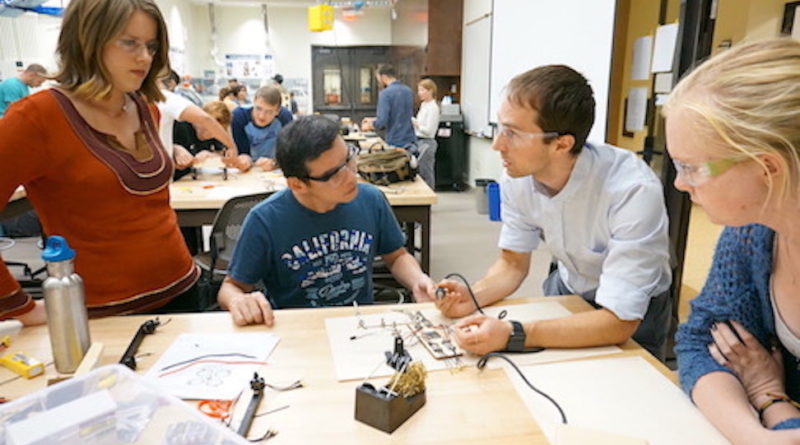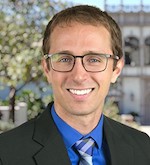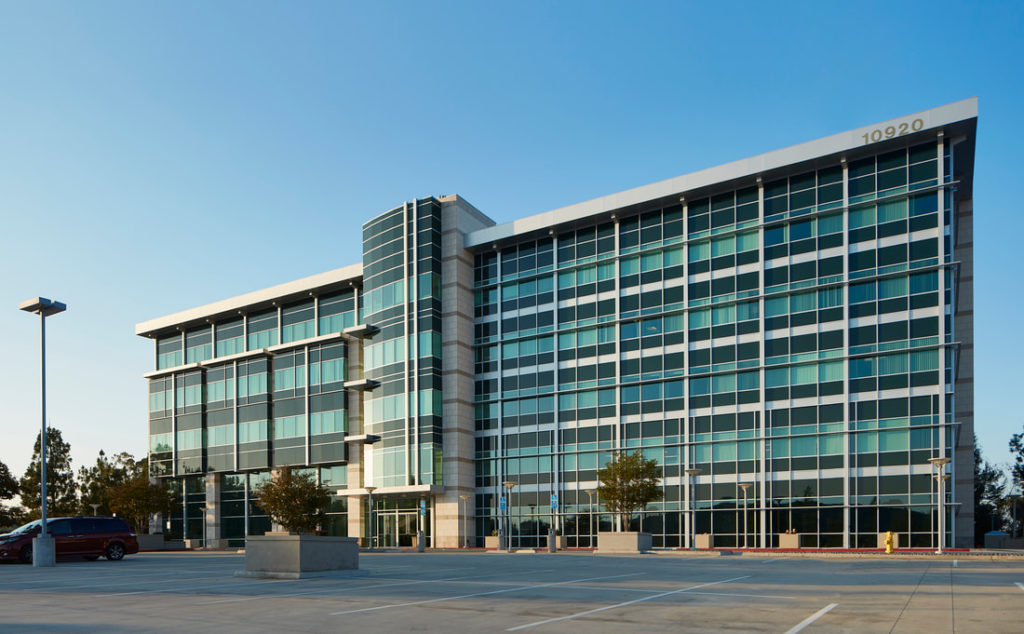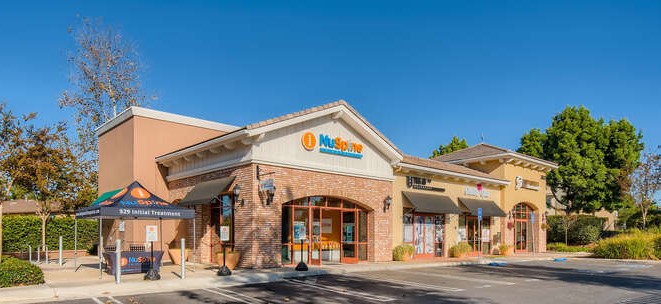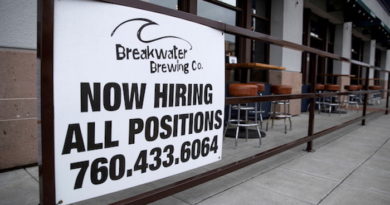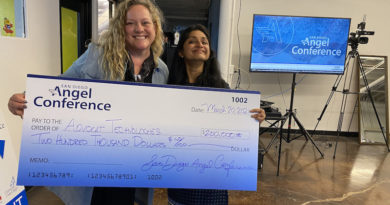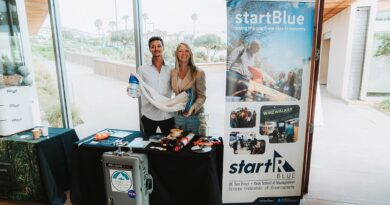Daily Business Report: Thursday, Jan. 6, 2022
Future engineers need to understand
their work’s human impact
Here’s how my classes prepare students to tackle problems like climate change
By Gordon D. Hoople
Gordon Hoople is assistant professor of engineering at University of San Diego
Engineers spend much of their time absorbed in the technical aspects of problems, whether they’re designing the next generation of smartphones or building a subway.
As recent news stories attest, this technocentric approach has some critical limitations, and the result can end up harming rather than helping society.
For example, artificial intelligence algorithms designed by software engineers to promote user engagement turn out to undermine democracy and promote hate speech. Pulse oximeters, key tools in diagnosing COVID-19, work better on light skin than dark. Power plants and engines, which have enabled much of the “progress” seen since the Industrial Revolution, have fueled climate change.
As an engineering professor, I have spent the past six years trying to figure out how to educate the next generation of engineers to avoid these mistakes.
Research shows that one of the key problems is that engineering classes often focus on decontextualized problems, failing to take into account the social context. We ask students to spend far too much time solving mathematical equations and far too little time thinking about the human dimensions of the problems they are trying to solve.
TOP PHOTO: Engineering classes at the University of San Diego have started integrating discussions of the social impact of technology like drones. (Credit: Gordon Hoople)

San Diego Community College District’s
annual economic impact — $3.6 billion
The San Diego Community College District (SDCCD) contributed $3.6 billion to the region’s economy during the 2020-21 academic year, according to a recent report from Emsi, an Idaho-based labor market analytics firm.
Among the report’s highlights:
• The $3.6 billion generated by the SDCCD in fiscal year 2020-21 supported 37,508 jobs or 1 out of every 57 jobs in San Diego County.
• The net impact of the SDCCD’s former students currently employed in the county workforce amounted to $3.1 billion in added income.
• Around 4 percent of students attending the SDCCD originated from outside the county. The expenditures of relocated and retained students added $114 million in added income to the San Diego County economy.
• Getting an education with the SDCCD continues to be a good investment. Students will receive a cumulative present value $2.3 billion in increased earnings over their working lives or a return of $4.50 in higher future earnings for every dollar students invest in their education. The average return on investment for SDCCD students is 18.1 percent as compared to the stock market 30-year average rate of return of 10.6 percent.
• For every dollar of public money invested in the SDCCD, taxpayers will receive $1.80 in return, over the course of students’ working lives.
Innovatus Capital Partners acquires
The Pinnacle office building
Innovatus Capital Partners LLC has acquired The Pinnacle, a five-story office building in Rancho Bernardo, a community that is home to some of the world’s leaders in technology and innovation. LPC West, the West Coast arm of national real estate firm Lincoln Property Company, has been retained to provide property management services. This is Lincoln Property Company’s 13th U.S. transaction with Innovatus.
Located along the Interstate 15 corridor on the city’s northeastern edge, The Pinnacle features 110,128 rentable square feet of Class A office space, with 100 percent current occupancy. Rancho Bernardo includes an array of technology- and innovation-oriented Fortune 500 mainstays, including Apple, Amazon, HP, Sony, Caterpillar, Northrop Grumman and more.
Built in 2007, The Pinnacle recently underwent a series of capital improvements including lobby renovations, upgraded shower and locker rooms, new landscaping, and EV charging stations. The property, located at 10920 Via Frontera, features 22,000 square-foot floor plates.
Digital chassis tech for autos takes center stage
as Qualcomm diversifies beyond smartphones
Qualcomm opened the hood on its “digital chassis” strategy Tuesday at CES in Las Vegas — showcasing efforts to expand mobile technologies beyond smartphones and deeper into cars. The moves include a new computer vision processor called the Snapdragon Ride Vision System, which will deliver advanced driver assistance via onboard cameras beginning in 2024.
The San Diego company’s new leading-edge chip will square off against Intel’s Mobileye — the dominant firm in machine vision technology used in cars. Mobileye announced its own new chip at CES to help enable autonomous driving in partnership with Volkswagen and Ford.
Cubic Corporation announces
major leadership transition
Stevan Slijepcevic has been appointed president and chief executive officer of Cubic Corporation and Mac Curtis has been appointed chairman of the company’s board.
Slijepcevic and Curtis succeed Bradley H. Feldmann, who has stepped down as chairman, President and CEO.
A seasoned executive with over 25 years of operational experience, Slijepcevic recently served as president of electronic solutions at Honeywell Aerospace, a diversified technology and manufacturing company serving customers in commercial air transport, defense, space, business and general aviation and urban air mobility.
Curtis brings more than 30 years of proven leadership experience as a multi-time CEO in the government technology industry, and more than 15 years’ experience partnering with Veritas. He most recently served as chairman and CEO of Perspecta, a leading U.S. government IT solutions and services provider, recently acquired by Veritas as part of Peraton.

Strict new emergency water regulations approved
by State Water Resources Control Board
Californians could soon be hit with fines as high as $500 for wasting water — the result of the State Water Resources Control Board on Tuesday unanimously approving yearlong emergency regulations that ban practices such as hosing down sidewalks and driveways with drinking water, washing cars without a shutoff nozzle on the hose and irrigating lawns and gardens too soon after rain, CalMatters’ Rachel Becker reports.
CalMatters’ Rachel Becker reports. The new rules underscore that California is still gripped by drought, though a recent deluge of rain and snow has helped: The state Department of Water Resources resumed operationsTuesday at the Lake Oroville hydropower plant after shutting it off in August due to low water levels. Still, conditions could soon take a turn for the worse. “The expectations are a drier than average January, February and March,” said state climatologist Michael Anderson.
Wilson Turner Kosmo law firm elects
four new partners in San Diego office
Wilson Turner Kosmo, the largest certified women-owned law firm in San Diego, has elevated four industry-leading attorneys to partner. Jennifer Arnold, Douglas Clifford, Kirsten Gallacher and Nicole Roysdon began their new leadership roles on Jan.1.
Jennifer Arnold, a leader in WTK’s Business Litigation, Products Liability and Warranty practice groups, has built her practice around safeguarding businesses in a wide array of disputes including class-action lawsuits, employment disputes and trade-secret litigation.
Douglas Clifford, a partner in the firm’s Class Action and Employment Law practice groups, has over 15 years of experience practicing employment law in a variety of roles, including litigator, in-house counsel, adjunct professor, mediator and business owner.
Kirsten Gallacher, a partner in the firm’s Class Action and Employment Law practice groups, defends clients in putative class-action matters, mainly in the consumer protection and employment arenas.
Nixolsw Roysdon, a leader in the firm’s Employment Law and Class Action groups, has over a decade of experience representing employers in a variety of disputes, including wage and hour litigation, wrongful termination, discrimination, harassment and retaliation.
Real Estate litigator Sabrina D. Johnson
joins HechtSolberg as an associate
Real estate and business lawyer Sabrina D. Johnson has joined Hecht Solberg Robinson Goldberg & Bagley LLP (HechtSolberg) as an associate.
Her practice will focus on business and real estate litigation and risk management.
Most recently, Johnson was an associate at Pettit Kohn Ingrassia Lutz & Dolin PC of San Diego, where she was involved in litigating legal malpractice defense, business disputes and personal injury claims.
Earlier, she was associated with Ryan | Carvalho LLP, Bremer Whyte Brown & O’Meara LLP, and Berman & Riedel LLP.
Johnson, who was admitted to the State Bar of California in 2015, graduated cum laude from the University of San Diego School of Law, where she was a member of the San Diego Law Review.
She served as a Judicial Extern for the Honorable Gonzalo P. Curiel, U.S. District Court, Southern District of California.
She graduated summa cum laude from San Diego State University with a Bachelor of Arts degree in political science and a minor in psychology.
Voyager Space completes acquisition
of San Diego’s Space Micro business
Voyager Space Inc., a leader in space exploration, has completed the acquisition of a majority stake in San Diego-based Space Micro. Voyager will provide strategic operations support to help advance Space Micro’s technology throughput to civil, commercial, and defense customers.
Space Micro is an innovative, engineering-driven business focused on advancing high-performance satellite communications, digital, and electro-optic systems with 2.8 million hours of space flight heritage.
Today, the company has multiple active contracts, including the development of AI for Earth observation missions and for providing X-Band transponders for two lunar missions selected under the NASA Artemis program.
Space Micro also has a history of providing critical technology for the U.S. Department of Defense, including Intelligence, Surveillance and Reconnaissance (ISR) space payloads, and secure laser communications terminals.
SANDAG and Caltrans crews begin Phase II
of San Dieguito Lagoon Wetland Restoration
This week, SANDAG and the California Department of Transportation (Caltrans), in partnership with the San Dieguito River Park Joint Powers Authority (JPA), began work on Phase II of the San Dieguito Lagoon Wetland Restoration south of Via De La Valle and east of I-5.
The lagoon restoration will create a new trail connection from the Dust Devil Nature Trail to the Coast to Crest Trail, enhance and expand riparian habitat along the San Dieguito River, and convert approximately 84 acres of former agricultural fields and other degraded land into tidal wetlands, which are an integral part of biodiversity in our region.
In total, 64 acres of tidal salt marsh, 15 acres of brackish wetlands, which are a mixture of saltwater and freshwater, and an additional five acres of riparian habitat will be restored through this project.
New regulations for short-term rental
owners in Encinitas take effect Jan. 7
A slew of new regulations for short-term rental owners in Encinitas will go into effect on Friday, Jan.7.
The City Council approved amendments to the existing short-term rental law last month. These amendments address common complaints related to short-term rentals, including neighborhood disruption, occupancy limits, parking and garbage issues, and traffic congestion. The regulations also define various short-term rental terms, add permit application and operating requirements, and clarify enforcement.
A separate ordinance adopted in November raises the cost of an annual short-term rental permit from $150 to $425, which will cover 80 percent of the city’s costs. Existing vacation rental permit holders will have 90 days from the effective date of the changes to comply with the new rules. They’ll need to pay the increased permit fee when they next renew their short-term rental permit.
Carlsbad’s first NuSpine Chiropractic
business to open on Jan. 14
Carlsbad Mayor Pro Tem Keith Blackburn will cut the ribbon Jan. 14 to officially open California’s first NuSpine Chiropractic location, along with its staff and representatives from the Carlsbad Chamber of Commerce.
NuSpine Chiropractic also will partner with the County of San Diego Animal Services to encourage the public to bring donations of new or gently used leashes, blankets and towels as well as food and/or toys for both cats and dogs at the 11:30 a.m. event. Each person who donates will receive one complimentary chiropractic exam and treatment and hydrotherapy massage.
As to why NuSpine is collaborating with a local animal shelter: during the holidays, many tend to give dogs and cats as gifts. Now that the season is over, this becomes one of the busiest times of the year for shelters as many “present animals” are returned and given up for adoption.
California Competes Tax Credit
application period opens
The California Competes Tax Credit (CCTC) and Grant Program (CCGP) are available to businesses that want to locate in California or stay and grow in California. Businesses of any industry, size, or location compete for over $180 million available in tax credits by applying in one of the three application periods each year.
Applicants will be analyzed based on 12 different factors of evaluation, including number of full-time jobs being created, amount of investment, and strategic importance to the state or region.

